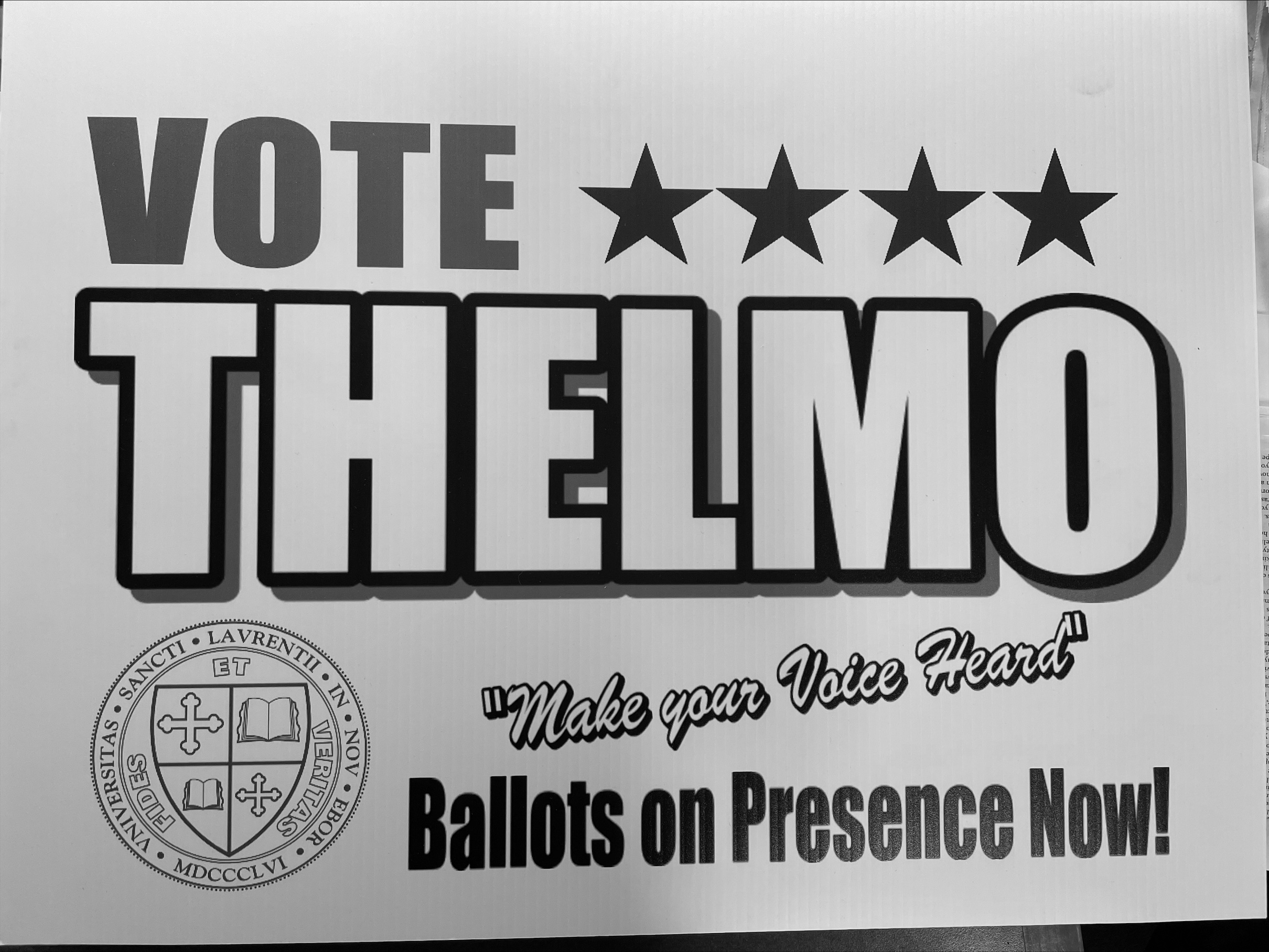There are simply some incidents that cannot be taken for granted, and as a triple major in Government, English, and History at our beloved institution, I found the brilliant opportunity to exercise all of them in last year’s bout of domestic politics. To no one’s surprise, the guilty group was Thelmo. Having watched all the debates fall semester, there was one that stood out the most, the presidential debate that closed out the night. Let me also make it clear that I did speak to both candidates after the debate as well to gauge them on an unaddressed policy area. I spent several weeks keeping the contrast to myself before revealing to my friends’ circle that the presidential debate was virtually our version of the 2016 federal debates. Given the metrics of who won, how, and for what reason, the notion that SLU re-enacted the infamously renowned 2016 election cycle was irresistible.
Why is this the case? There are obviously several reasons that go beyond the simple fact that now President Dean Brooker is a man and that Johanna Sherman is a woman, though that was a distinct element of the 2016 election. While we’re at it, ironically enough, Sherman’s vote percentage was nearly the same as Hillary Clinton’s Electoral College vote percentage. Thelmo Elections Chair Zach Jaworksi notably claimed in his voting results email that there was a “great turnout.” Not only am I willing to believe that, but it makes one wonder whether the next Thelmo presidential election will have 2020 levels of voting. Even more interesting, this Friday is the second round of the Czech presidential election in which Petr Pavel’s campaign slogan is similar to Clinton’s.
Back on the glaring issue, one of the most shocking elements of the elections as a whole last semester was that virtually anyone with the most experience for their position was thrown into the seat they sought. Somehow, the exception here was the presidency. Contrast these positions to elections to Congress, and it tends to be the case as those who seek out such offices tend to have accomplished related things or have been in various positions that clearly prove relevant. If this is really true, then what stopped this from being the case for the Thelmo presidency? How could the constituency or “SLUdency” as one might call it (Laurentians doesn’t cut it here) let this happen? Sherman was more experienced than Brooker (and still is), almost literally in the margin that Clinton was to Trump, and even better, Sherman had no email scandal and did not call anyone (or group) a “basket of deplorables.”
The question of the year still remains. What did 50 percent of voters find so attractive about a Brooker presidency? Perhaps it’s the fact that former President Crow (and Torres) presided over our equivalent of the Watergate scandal which formed collateral on the notion of another female president. Or perhaps it’s the fact that someone with no campaign promises can’t break any. Maintenance of faith in systems like Thelmo have noticeably declined during my time at SLU,
Yet this dilemma refuses to explain how bureaucrats won all other positions up for grabs and not the presidency. Ultimately, this dilemma is a paradox in which the upcoming Senate elections might help give insight to.
One doesn’t need to go far to understand that Brooker’s campaign focused on nationalism with the expectation of patriotism. His debate presentation was to goad the populace into having a higher turnout at sporting events and argued that there’s no genuine excuse why there shouldn’t be maximum turnout at such events. Maybe that’s true but it hardly solves any issues that the very constituency always bullies Thelmo about. There was a foray into transparency by arguing that he could be spoken to at any time if
discovered, which I assume is how most people work anyway. In other words, a bulk of the 50 percent of voters appeared to be seduced by the shock value of such an abstract campaign argument. I have no doubt that Brooker has foundational allies being an athlete or like any candidate would. Third-party candidate George Gowdy proved that Brooker could only dream about hosting a larger chunk of athlete voters. Something that surprised me was that double Gowdy’s percentage were “other” candidates. It was almost as if all the additional parties in 2016 threw someone in the pool to play. Sherman very likely had a decent amount of her own considering that nearly a third of SLU is involved in formal sports.
The thing that bit me in the following days after the debate was the realization that Sherman could genuinely lose – and by a large margin, 10 percent as we discovered. The only thing that was missing was our version of Election Night in America but since the SLUdency violently struggles with voting, we can never have fun things like that. People that don’t care don’t vote, which is fine, and people who do care do it on time, while other people have the thrill of holding everyone else hostage—an issue that’s likely impossible to solve every passing year. Now remains to be seen on whether Thelmo decides to practice American politics in full by having a fist fight over what is worthy policy. At least Brooker didn’t pretend like George Santos. That’s what really matters.
Phil Collins might argue that this scenario only functions at face value, but seriously, we have a problem.



